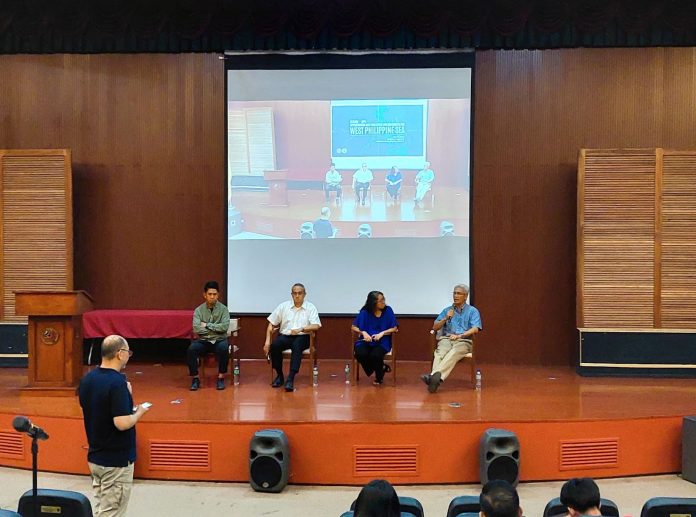The country’s leading scientists convened at the University of the Philippines – Diliman to call for long-term monitoring and sustainable management of the West Philippine Sea’s resources, highlighting the need amidst ongoing territorial disputes.
The event, SCIENCE X WPS: Opportunities and Challenges for Scientists in the West Philippine Sea, was held on May 13, 2024, and focused on the myriad of challenges that impact the region.
Dr. Giovanni Tapang, Dean of UPD College of Science, outlined the multifaceted nature of the West Philippine Sea issues.
“We are eager to work with all stakeholders to comprehensively address these challenges,” said Dr. Tapang.
Dr. Laura David, Director of UPD-CS Marine Science Institute, discussed the ecological risks from climate change, overfishing, and pollution. She described the decline in coral reefs and fish populations due to island reclamation and noted the presence of international debris affecting marine biodiversity.
“Reclamation has significantly reduced the number of live coral reefs as occupations increase,” Dr. David said. “This issue extends beyond local impact, affecting the entire South China Sea region.”
Dr. Fernando Siringan of the National Academy of Science and Technology emphasized the importance of understanding natural hazards such as tsunamis and their potential impact on island developments.
“It’s critical to include the effects of tsunamis in our island development strategies,” he said.
Dr. Siringan also called for more research funding and the development of marine stations like the one on Pagasa Island to boost collaborative efforts.
Professor Herman Joseph Kraft of the UPD Department of Political Science analyzed the geopolitical tensions, particularly focusing on China’s expansive claims marked by the nine-dash line.
“China’s claims are excessive and far-reaching,” explained Professor Kraft. He highlighted the necessity of multilateral cooperation to manage the geopolitical dynamics involving major powers such as the United States and China.
Dr. Jonathan Anticamara of the Institute of Biology spoke about the socioeconomic impacts of depleting fish stocks on local communities.
“As our fishing capabilities expand, our fish stocks decrease, leading to significant economic difficulties for our fisherfolk,” he said.
Dr. Anticamara stressed the importance of a balanced approach to marine resource management to ensure both food security and economic viability.
The forum concluded with a unified call for a systematic approach to managing the resources of the West Philippine Sea, urging government support for scientific research and international cooperation to ensure the sustainability of this crucial marine area.









